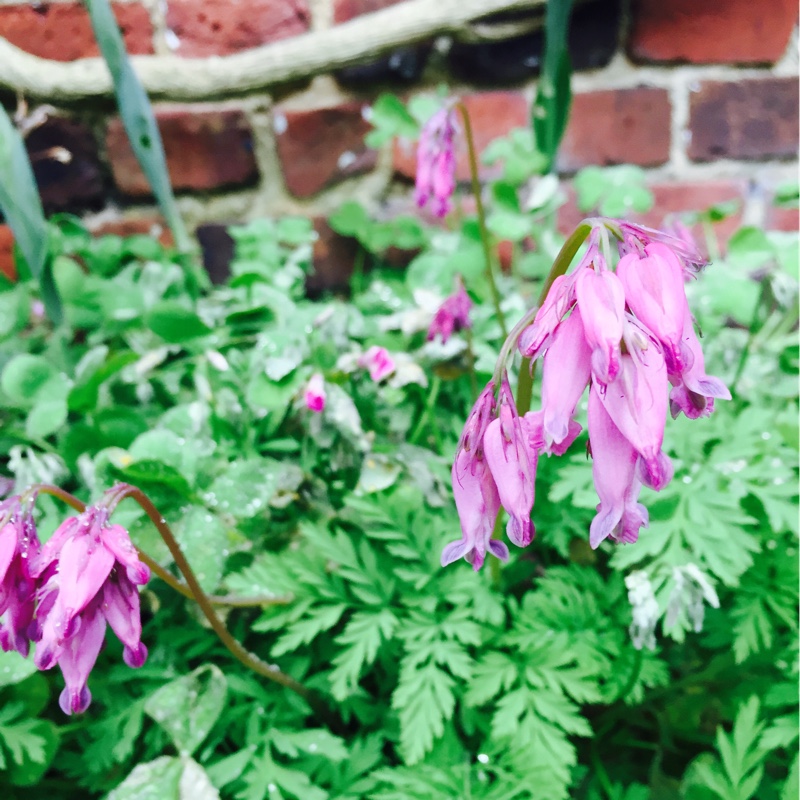
Dicentra formosa 'Cox's Dark Red'
Bleeding Heart 'Cox's Dark Red'
Dicentra formosa is a rhizomatous, deciduous, bushy perennial. In spring and summer it sports arching sprays of pendulous deep pink, heart-shaped flowers which are held above the feathery, fern-like blue-green leaves. 'Cox's Dark Red' is a super compact form of bleeding heart with pendant, heart-shaped, deep-red flowers produced for a long period over olive-green, ferny foliage. Excellent for growing in light shade in a humus-rich soil. Associates well with ferns and hostas. It will also tolerate sun if the soil is moist.
-
Full sun to partial shade
-
Occasional watering
-
Full Frost Hardy: 5F (-15°C)
-
Free draining and fertile
Common name
Bleeding Heart 'Cox's Dark Red'
Latin name
Dicentra formosa 'Cox's Dark Red'
type
Herbaceous Perennials
family
Papaveraceae
ph
6.5 - 8.0 Acid - Neutral
Plant & bloom calendar
-
Best time to plant
full grown dimensions
 0.30 M
0.25 M
0.30 M
0.25 M
Dicentra formosa 'Cox's Dark Red'
Dicentra formosa is a rhizomatous, deciduous, bushy perennial. In spring and summer it sports arching sprays of pendulous deep pink, heart-shaped flowers which are held above the feathery, fern-like blue-green leaves. 'Cox's Dark Red' is a super compact form of bleeding heart with pendant, heart-shaped, deep-red flowers produced for a long period over olive-green, ferny foliage. Excellent for growing in light shade in a humus-rich soil. Associates well with ferns and hostas. It will also tolerate sun if the soil is moist.
Planting Outdoors
From Mid Spring TO Late Spring
Plant container grown plants in spring. They thrive in moist, humusy rich, well-drained soil in partial to full shade. They will tolerate full sun in cooler climates, provided they are kept moist. These plants will tolerate slightly alkaline soil. When planting, add lots of compost, humus, or peat moss to the soil to enhance its water retention capabilities.
Propagation by cuttings
From Late Autumn TO Late Autumn
Dicentra plants can be propagated by 6-8cm root cuttings which are best taken in late autumn. Carefully lift the plant out of the ground, do not to damage its roots. Rinse the roots in water to remove all soil. With a sharp knife, take off 8cm lengths of pencil thin roots. Fill pots with compost to which grit has been added, lay the cuttings, spaced out, on top. Cover with a thin layer of compost. Water well, label pots and place in a in a cold frame or somewhere cool indoors. Replant the parent plant.









